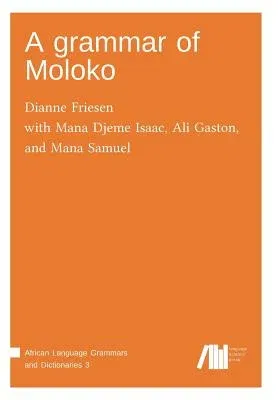This grammar provides the first comprehensive grammatical description of
Moloko, a Chadic language spoken by about 10,000 speakers in northern
Cameroon. The grammar was developed from hours and years that the
authors spent at friends' houses hearing and recording stories, hours
spent listening to the tapes and transcribing the stories, then
translating them and studying the language through them. Intriguing
phonological aspects of Moloko include the fact that words have a
consonantal skeleton and only one underlying vowel (but with ten
phonetic variants). The simplicity of the vowel system contrasts with
the complexity of the verb word, which can include information (in
addition to the verbal idea) about subject, direct object (semantic
Theme), indirect object (recipient or beneficiary), direction, location,
aspect (Imperfective and Perfective), mood (indicative, irrealis,
iterative), and Perfect aspect. Some of the fascinating aspects about
the grammar of Moloko include transitivity issues, question formation,
presupposition, and the absence of simple adjectives as a grammatical
class. Most verbs are not inherently transitive or intransitive, but
rather the semantics is tied to the number and type of core grammatical
relations in a clause. Morphologically, two types of verb pronominals
indicate two kinds of direct object; both are found in ditransitive
clauses. Noun incorporation of special 'body-part' nouns in some verbs
adds another grammatical argument and changes the lexical
characteristics of the verb. Clauses of zero transitivity can occur in
main clauses due to the use of dependent verb forms and ideophones.
Question formation is interesting in that the interrogative pronoun is
clause-final for most constructions. The clause will sometimes be
reconfigured so that the interrogative pronoun can be clause-final.
Expectation is a foundational pillar for Moloko grammar. Three types of
irrealis mood relate to speaker's expectation concerning the
accomplishment of


